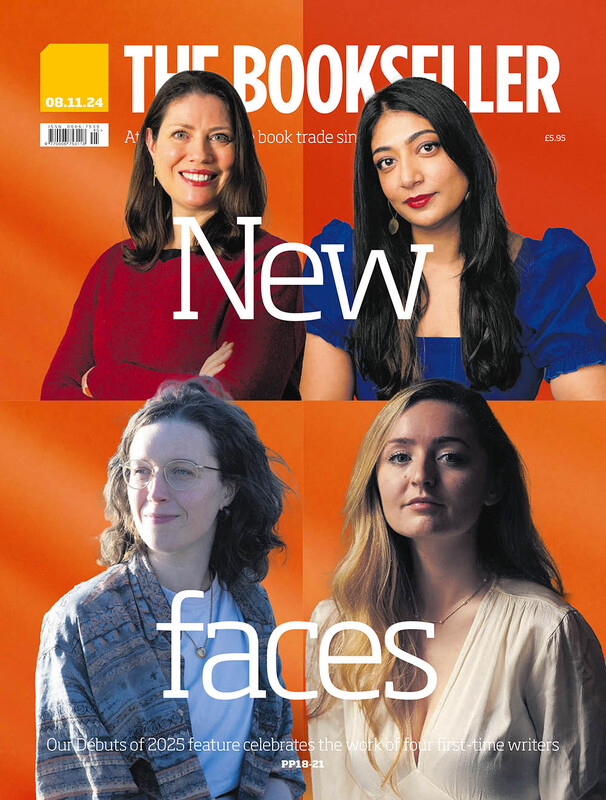The publishing industry’s AI imperative
The book trade must advocate for copyright on authors’ behalf while innovating in AI to combat big tech’s “move fast and break things” ethos
With a Labour government in power in the UK for the first time in more than 15 years —and as we await the publication of a new Text and Data Mining (TDM) Consultation—a clear path towards a mutually satisfactory relationship between the creative and media industries that invest in and create Intellectual Property, and the tech companies that scrape it for Generative AI, remains frustratingly unclear. A question I keep asking is: are we making a strong enough case for the ways in which publishers and the creative industries can contribute to the best in AI and innovation if the right balance of protection, investment and creativity is enabled?
I recently sat on a panel at the Labour Party Conference alongside peers in the news and media industries to discuss how a Labour AI Bill could boost creativity and spur investment in trusted journalism and writing. At the same time, Google was signalling to the new government that it wants a TDM exception to enable AI companies to infringe copyright works in the process of training large language models. It is vital that we dispute this; exceptions are made in the context of market failure, and here we are at the dawn of a potential market, not the end of one.
We must forcefully argue both for our capability as innovators and our potential role in supporting the best, most innovative AI models
The international picture when it comes to IP and AI is already fragmented and complex. The European Union’s AI Act has made strong inroads in some areas, among them data protection, safety and more, but equally it has left questions like the validity of an exception more open, which is unhelpful. Much will be left to codes of practice, a recent working group for which included more than 1,000 participants, suggesting progress will not be quick. The opportunity for UK government is for it to do things differently when it comes to AI legislation—dare I say it, to do things better—but the pressure from the tech companies not to let the UK “fall behind” risks copyright being seen as a barrier to AI investment and innovation, rather than the goose that creates the golden egg.
The need for publishers and those in the wider creative and media industries to press our case has never been greater, and the importance of getting the tone and content of our argument clear never more serious. The irony is that without the UK’s creative and media industries investing in the amazing IP that underpins many of these AI models, they simply wouldn’t exist. We need to find a tone that celebrates the role of world-class IP in spurring technological innovation, and also its role in giving consumers a reason to use and trust new technologies, products and services.
Our position cannot be confined to the fact that human creativity and connection is worth preserving in and of itself. We must also forcefully argue both for our capability as innovators in our own right and our potential role in supporting the best, most innovative AI models—properly licensed and transparent—to flourish. We know the importance of well-researched, skillfully written content that represents a multitude of voices and experiences. We also know publishing’s importance in driving the cultural agenda, and its contribution to the UK economy. And we understand its value as the foundation for the best GenAI.
Content rules
AI companies developing the generative models rely on a sustainable stream of the latest high-quality content and data. This means IP belongs at the heart of the global AI dialogue, not as a barrier to be overcome. A strong copyright framework provides the incentive for publishers and others to invest in content that can create better-performing AI models, with more accurate and trusted outputs and, as niche models for specific market and service segments emerge, so will an increasing need for authoritative, curated and specialist content to fuel them.
This is an area in which the UK’s competitive strength in Intellectual Property could underpin world-leading innovation in AI. We can and should be innovating in this space. If authors, illustrators and other contributors to our creative industry and media ecosystem could see transparency, permission, remuneration and attribution for their work being used in GenAI systems, we could better engage our communities with the possibilities of AI, and adopt these new technologies with much greater enthusiasm and efficiency. Furthermore, it will enable us to continue our investment in the content and data sets AI companies continually need to produce the most robust and trusted models.
We have a lot of work to do—at speed—and in an unclear environment. The size of the challenge to IP owners as AI companies continue to “move fast and break things”, and the complexity in practice of leveraging and proving the opportunities of AI, make this so. All this while AI burnout is also a current reality. As businesses increasingly push strategies for AI adoption, recent surveys—such as Upwork’s recent study examining the impact of AI on workload—show that the majority of employees are finding the introduction of AI tools more of a drain than an exciting transformation.
Employees report that the task of learning, piloting and adapting AI tools, in reality, adds to their existing workload as they are yet to reap the full benefits. According to current research, media consumers are only marginally more convinced by AI than they were this time a year ago, with recent analysis—such as the BBC’s Embedding the Audience research—showing that trust in AI systems is still low, driven by the lack of transparency and concerns about the ethics of AI. We must move forward against this background of uncertainty however, because none of this is a deterrent to the AI companies, and the onus is increasingly on us to demonstrate that publishing and AI can flourish in respect of each other.
With all this as a backdrop as we enter Frankfurt’s halls again, we can also expect to see the book business bustling, as usual, with people still resolutely and encouragingly at the heart of it. We swing between concerns for the sustainability of our businesses and the precarious counterbalance of everything proceeding somewhat as usual. We cannot let our fears about AI’s disregard for copyright defeat us, nor allow this semblance of “business as usual” to make us complacent.
In service of our authors, illustrators and contributors, we must continue to advocate on their behalf, not just in terms of what their work adds to the economy, society, education and research, but also what it can provide to enable the highest standard of Generative AI development. At the same time, we must openly embrace innovation ourselves, demonstrate what AI can add to the business of publishing, drive publication of cutting-edge AI research and thought leadership, and ensure that books benefit from some of the advanced new methods of promotion and presentation that make the most of these new technologies. The future of UK publishing and our strong arguments in favour of upholding our world-leading copyright regime depends on it.




















